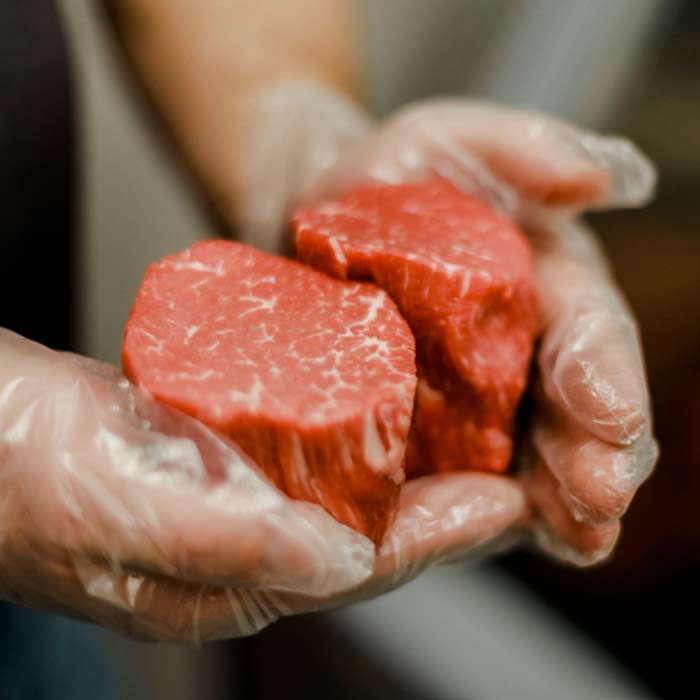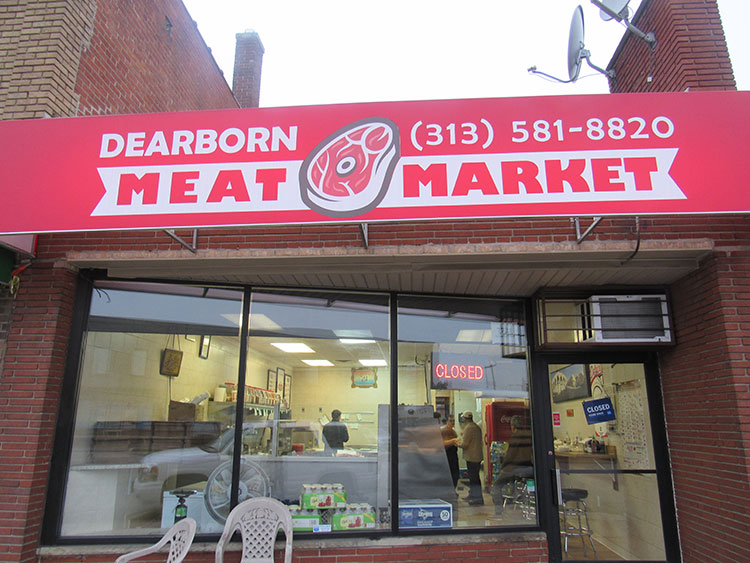Bagley Meat Market Edwardsville IL – Your Local Destination for Premium Meats
Why Picking a Meat Market Over a Supermarket Makes a Distinction in Preference and Quality
The difference between acquiring meat from a specific market versus a grocery store often hinges on the nuanced layers of taste and high quality. Meat markets commonly emphasize quality, sourcing their items from regional ranches, which not just improves flavor but also cultivates lasting methods. The expertise of experienced butchers can provide indispensable understandings into selecting the appropriate cuts for different cooking applications, guaranteeing a more customized experience. Nonetheless, the ramifications of these options prolong past mere taste; they raise crucial questions regarding the wider effect on customer practices and local economic climates. What else might be at risk?

Quality of Products
Prioritizing quality is a considerable benefit of selecting a meat market over a supermarket. Meat markets usually supply products that are sourced locally and processed with an emphasis on keeping optimal freshness. Unlike grocery stores, where meat may be stored for extensive periods, meat markets typically get everyday deliveries, ensuring that their inventory is regularly replenished with high-quality cuts.
Moreover, meat markets usually have an extra effective supply chain, minimizing the moment from ranch to table. This quick turnover not only enhances the flavor and appearance of the meat yet additionally provides customers with assurance regarding the top quality of the products they purchase. The knowledgeable butchers at meat markets can additionally give important understandings into the freshness of their offerings, as they are totally acquainted with their distributors and the problems under which the meat is managed.
Additionally, meat markets frequently focus on entire cuts and specialty things that might not be readily available in grocery stores, permitting customers to check out a selection of alternatives that are fresher and a lot more savory. This dedication to quality inevitably adds to a remarkable culinary experience, making meat markets an appealing choice for critical consumers.
Sourcing and Sustainability
The commitment to high quality at meat markets extends past freshness to incorporate sourcing and sustainability techniques. Unlike large grocery stores, which commonly depend on mass-produced items, meat markets focus on moral and regional sourcing. This method not just sustains local farmers and ranchers however additionally lowers the carbon impact connected with delivering meat over long ranges.

Moreover, meat markets often supply a variety of cuts and specialized meats that show the periods and neighborhood culinary practices. This commitment to sustainability promotes a connection between consumers and their food sources, promoting transparency regarding the origins of the meat they purchase. By selecting meat markets, customers can enjoy not just improved tastes but additionally the satisfaction of sustaining accountable and lasting farming methods.
Professional Knowledge and Suggestions
While purchasing at a meat market, consumers take advantage of the professional understanding and customized advice provided by knowledgeable butchers. These professionals are normally well-trained and have extensive experience in the meat market, allowing them to offer insights that go much past the essentials located in a grocery store. They can guide consumers on choosing the best cuts for details recipes or occasions, ensuring ideal flavor and inflammation.

On top of that, butchers frequently put in the time to engage with clients, addressing questions and sharing tips that are not readily available in a supermarket setting. This degree of tailored service promotes a much deeper link between clients and their food, ultimately elevating the overall culinary experience. By selecting a meat market, consumers get to a wide range of expertise that can substantially influence their food preparation and enjoyment of meat.
Taste Accounts and Selection
When discovering the offerings at a meat market, consumers are typically compensated with a varied array of flavor profiles and cuts that are normally inaccessible in grocery stores. Unlike mass-produced meat items, which commonly prioritize uniformity, meat markets curate their options based upon top quality and regional specificity. This results in a selection of meats that mirror one-of-a-kind tastes, textures, and prep work techniques.

Seasonal and locally sourced choices further improve the experience, as these items commonly have exceptional quality and taste. The experienced butchers at meat markets can lead customers on the finest cuts for specific dishes, making sure that each option aligns with desired flavor accounts and food preparation strategies. In general, the selection and top quality found in meat markets not only raise the cooking experience but likewise urge exploration and trial and error in home food preparation.
Sustaining Local Economic Climates
Picking a meat market not just enhances culinary experiences through diverse flavor accounts but also plays a considerable function in supporting regional economic climates (bagley meat market edwardsville il). When customers decide for meat markets over bigger grocery store chains, they are more probable to engage with companies that source their products from regional ranches and manufacturers. This technique cultivates a lasting farming setting, urging farmers to maintain standard techniques that generate premium meats
Additionally, meat markets commonly use neighborhood team, which adds to work production and retention within the community. The economic impact prolongs beyond the prompt organization; cash invested at regional facilities click here to read often tends to flow within the area, profiting different fields such as retail, marketing, and transport. This regional investment helps enhance the total economic health of the location.
Additionally, meat markets often highlight transparency and ethical sourcing techniques, which resonate with customers progressively concerned regarding the beginnings of their food. By choosing to buy these establishments, consumers not only delight in superior items but likewise affirm their commitment to sustaining their community's economic climate. Basically, selecting a meat market is a deliberate choice that nurtures both personal satisfaction and more comprehensive financial vitality.
Final Thought
Picking a meat market over a grocery store significantly impacts taste and high quality. Generally, the advantages of choosing a meat market expand past private preferences, influencing more comprehensive ecological and financial elements while elevating the art of food preparation.
Unlike grocery stores, where meat might be saved for prolonged durations, meat markets often receive daily distributions, guaranteeing that their inventory is consistently restored with high-grade cuts.
The skilled butchers at meat markets can additionally give useful insights into the quality of their offerings, as they are totally familiar with their suppliers and the problems under which the meat is managed.
Furthermore, meat markets usually use a range of cuts and specialty meats that show the seasons and neighborhood cooking customs. By selecting a meat market, consumers obtain accessibility to a wealth of understanding that can substantially impact their food preparation and pleasure of meat.
Unlike mass-produced meat products, which usually prioritize harmony, meat markets curate their choices based on top quality and regional specificity.